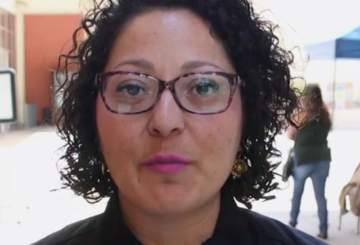Know Your Rights

Since Donald Trump’s announcement of impending raids concentrated on immigrant strongholds across the country, the undocumented community has braced itself for sweeping federal operations at devastating proportions. However, it seems that any actual arrests have been lackluster and the only thing Trump has been effective at is inciting racial tensions with his “Send Her Back” commentary directed at Rep. Ilhan Omar and the “Squad,” which include Rep. Alexandria Ocasio Cortez. If there’s silver-lining to be found anywhere here, it’s in the fact that this wolf cry generated a massive “Know Your Rights” response within undocumented groups and their allies. This effort must be continuous until policy reform takes shape but until then, the most basic thing is to inform ourselves and our communities on how to protect their civil rights. Let’s take a look below at the do’s and don’ts of dealing with ICE.

How to avoid the risk
- Stay calm and keep the door closed. Opening the door does not give them permission to come inside, but it is safer to speak to ICE through the door.
Your rights
- You have the right to remain silent, even if an officer has a warrant.
- You do not have to let police or immigration agents into your home unless they have certain kinds of warrants.
- If the police have an arrest warrant, they are legally allowed to enter the home of the person on the warrant if they believe that person is inside. But a warrant of removal/deportation (Form I-205) does not allow officers to enter a home without consent.
What to do when the police or ICE arrives
- Ask if they are immigration agents and what they are there for.
- Ask the agent or officer to show you a badge or identification through the window or peephole.
- Ask if they have a warrant signed by a judge. If they say they do, ask them to slide it under the door or hold it up to a window so you can inspect it.
- Don’t lie or produce any false documents. Don’t sign anything without speaking with a lawyer first.
- Do not open your door unless ICE shows you a judicial search or arrest warrant naming a person in your residence and/or areas to be searched at your address. If they don’t produce a warrant, keep the door closed. State: “I do not consent to your entry.”
- If agents force their way in, do not resist. If you wish to exercise your rights, state: “I do not consent to your entry or to your search of these premises. I am exercising my right to remain silent. I wish to speak with a lawyer as soon as possible.”
- If you are on probation with a search condition, law enforcement is allowed to enter your home.
Additional resources




